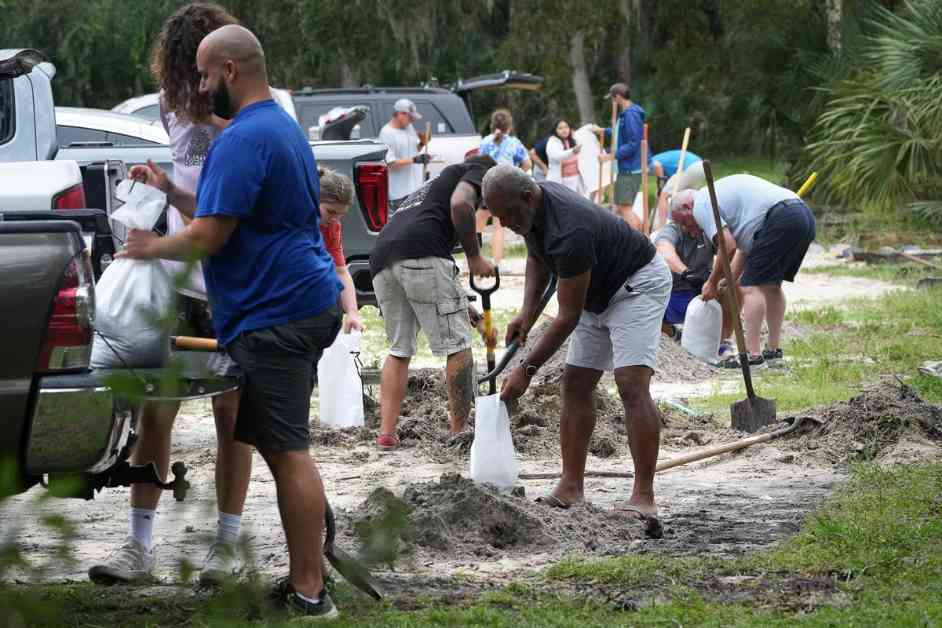Florida is facing the threat of another major storm, Hurricane Milton, just two weeks after Hurricane Helene caused significant damage to the region. As of October 8, Hurricane Milton has intensified rapidly to a Category 4 storm with maximum sustained winds of 155 miles per hour. The storm is expected to make landfall in Florida, particularly impacting the western coast around Tampa.
Meteorologists are warning of the potential dangers posed by Hurricane Milton, including strong winds that could lead to power outages, storm surges of up to 15 feet, heavy rainfall of up to 18 inches in some areas, and the possibility of tornadoes. The storm’s arrival at a right angle along the coast could result in a steeper surge, causing water to push inland rapidly.
The region is still reeling from the effects of Hurricane Helene, which caused the highest storm surge in the area since recordkeeping began in 1947. The vulnerability of Tampa Bay to storm surges is exacerbated by its shallow offshore waters, leaving the region susceptible to flooding. With the ground already saturated from a wet summer and the debris left behind by Hurricane Helene, the area is at risk of severe flooding.
Hurricane Milton’s rapid intensification and eye wall replacement cycle have made it a particularly unpredictable and dangerous storm. The storm’s wind intensity and exact path into Florida are still uncertain, but it is expected to cause significant hazards to the region. Climate change is likely to increase the frequency of storms undergoing rapid intensification, posing a greater risk to coastal communities like Tampa Bay.
Residents are urged to take precautions and prepare for the impact of Hurricane Milton, as it has the potential to be one of the worst disasters in U.S. hurricane history. The storm is expected to cross the state of Florida before tracking across the Atlantic Ocean, with Bermuda possibly experiencing effects over the weekend. Despite the uncertainty surrounding the storm’s path, one thing is clear: this is a storm that will leave a lasting impact on the state of Florida.




